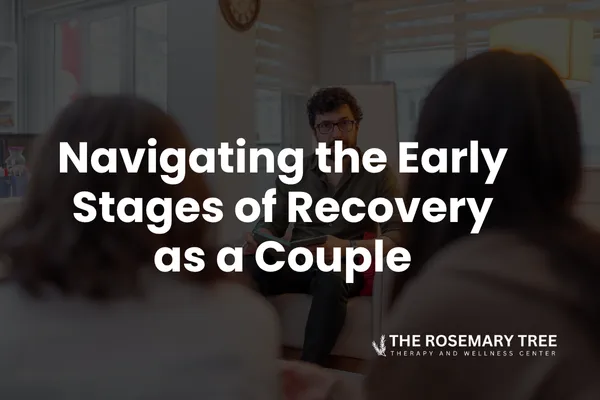
Navigating the Early Stages of Recovery as a Couple: When Secrets Are Exposed and Emotions Run High
The moment secrets are exposed, everything changes. For the betrayed partner, it can feel like the world has stopped. For the partner who acted out, there’s shock, guilt, and the crushing realization of what’s been lost.
Both are in pain. Both feel unsafe. And yet, both are standing at the beginning of something that could, if handled with care, lead to deep, lasting transformation.
These first few days and weeks are often the most difficult stage of recovery. Emotions are unpredictable, sleep disappears, and even breathing can feel hard. You may question whether healing is even possible.
It is. But it begins with understanding what is happening inside you.
What’s Really Going On in the Early Stages
In the early phase after discovery, both partners experience trauma responses.
For the betrayed partner:
You may experience waves of anger, disbelief, or numbness.
Your body stays in constant alert mode, scanning for more danger.
You might have nightmares, racing thoughts, or flashes of panic.
For the partner who acted out:
You may feel intense guilt, shame, or fear of losing everything.
You might want to fix it immediately, but find your words make things worse.
You may feel overwhelmed by the emotional pain you caused and unsure how to show up.
Understanding that both partners are reacting from trauma, not character flaws, can help you begin to approach each other with compassion instead of blame.
What Couples Often Get Wrong
In the chaos of the early stages, couples often rush into action because sitting in pain feels unbearable. They might:
Try to move on too quickly.
Begin policing or over-monitoring each other’s behavior.
Demand instant forgiveness or full trust.
Avoid discussing what happened out of fear of making it worse.
These reactions are understandable, but they can make recovery harder. What’s most needed in this stage is stabilization, not resolution.
Healing begins by creating safety first, then truth, then connection.
Stabilization: The First Step Toward Recovery
Before rebuilding trust, couples must calm the chaos. That means stabilizing the emotional environment so both people can think and feel clearly again.
This looks like:
Taking breaks when conversations become too heated.
Agreeing on basic ground rules for communication (no yelling, no name-calling).
Limiting major decisions while emotions are high.
Avoiding exposure to triggering content or environments.
Stabilization gives your nervous system space to settle. Without it, you’ll stay stuck in survival mode, reacting instead of healing.
Why You Can’t Do This Alone
In the early stages, couples often try to navigate recovery without help. They promise to “figure it out” or believe time will heal things naturally. But betrayal and compulsive sexual behavior are not surface issues, they’re trauma wounds that require skilled intervention.
Weekly therapy can help, but when emotions are raw and patterns are entrenched, it’s not always enough.
Our Accelerated Deep-Work Therapy Intensives are designed specifically for couples in crisis, those who need immediate, structured, and compassionate support before more damage is done.
How Intensives Help During the Chaos
An intensive gives couples uninterrupted time to process what has happened while guided by licensed clinicians who specialize in trauma and relationship repair.
During this stage, intensives help you:
Understand the trauma response affecting both partners.
Learn how to communicate without escalating conflict.
Begin early emotional regulation techniques for stability.
Create a plan for truth-telling, boundaries, and support.
Develop a roadmap for the weeks that follow.
Instead of spending months circling the same arguments, intensives help couples reach stability within days, so the healing process can begin sooner.
The Role of Honesty and Containment
It is tempting to dump every detail at once to “get it all out.” But disclosure done in panic often retraumatizes both partners.
Safe disclosure is structured and guided. In therapy intensives, this process happens with care, balancing truth with emotional containment so the betrayed partner can receive information without being re-wounded.
Healing requires honesty, but it also requires protection of the heart that’s been broken.
How to Support Each Other in the Early Days
If you’re both still under the same roof, survival may look like hour-to-hour communication. You may not know what to say, or you may say too much. It’s okay to not get it right.
A few practical steps:
Pause before reacting. Slow, steady breathing can keep conversations from turning explosive.
Validate pain. You don’t have to fix your partner’s emotions, just acknowledge them.
Prioritize rest. Emotional trauma drains your energy. Sleep and nourishment matter.
Avoid isolation. Seek support through therapy, trusted mentors, or faith communities.
You can’t rebuild connection without safety, and safety starts with regulation.
What Recovery Begins to Feel Like
After stabilization, something subtle begins to shift. The betrayed partner might begin to breathe again without constant fear. The partner who acted out might begin to see that accountability is not punishment, it’s the path to freedom.
Small steps become powerful milestones:
A difficult conversation ends in calm instead of shouting.
Tears lead to relief instead of distance.
The home feels a little quieter, a little steadier.
These are early signs that healing has begun.
Final Thoughts
The early stages of recovery can feel like standing in the wreckage of everything you built—but this is where rebuilding starts. With the right support, honesty, and structure, couples can move from chaos to clarity, and from pain to peace.
If you know you need this, click here to submit an inquiry and we will get back to you right away to get the process started for you. This is an in-person service, but you can still reach out and have a conversation with us. We can talk with you and help you explore whether this next step feels right for you.


